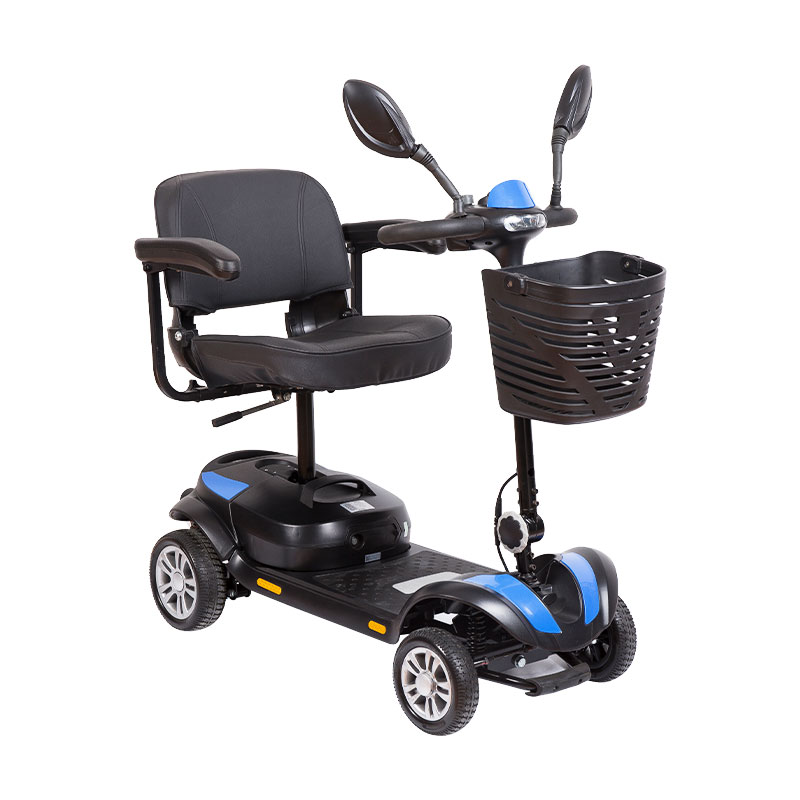Why are the Elderly Mobility Scooter's lithium-ion batteries more environmentally friendly than lead-acid batteries?
Lithium-ion (Li-ion) batteries are generally considered more environmentally friendly than lead-acid batteries for several reasons:
1. Higher Energy Efficiency: Li-ion batteries are more energy-efficient than lead-acid batteries. They have a higher energy density, which means they can store and release energy more efficiently, leading to less energy waste during charging and discharging.
2. Longer Lifespan: Li-ion batteries tend to have a longer lifespan compared to lead-acid batteries. They can endure more charge and discharge cycles without significant capacity degradation. This longevity reduces the frequency of battery replacements, lowering the environmental impact associated with battery manufacturing and disposal.

3. Lower Toxicity: Lead-acid batteries contain lead, a highly toxic heavy metal. Improper disposal or mishandling of lead-acid batteries can lead to soil and water contamination, posing health risks. Li-ion batteries, on the other hand, do not contain toxic heavy metals like lead, making them safer for the environment.
4. Reduced Weight and Size: Li-ion batteries are lighter and more compact than lead-acid batteries with similar energy storage capacity. This reduced weight contributes to energy efficiency, as it requires less energy to move the mobility scooter. Additionally, it reduces the carbon footprint associated with transportation and manufacturing.
5. Reduced Maintenance: Li-ion batteries require minimal maintenance compared to lead-acid batteries. Lead-acid batteries may need regular maintenance, including topping up with distilled water and cleaning corrosion, which can release harmful chemicals into the environment if not handled properly.
6. Recyclability: Li-ion batteries are more easily recyclable. The materials used in Li-ion batteries, such as lithium, cobalt, and nickel, have a higher recycling potential compared to the lead and sulfuric acid in lead-acid batteries. Proper recycling of Li-ion batteries can recover valuable materials for reuse.
7. Reduced Emissions: Li-ion batteries have a smaller carbon footprint during their use because they are more energy-efficient. This reduces the emissions associated with charging and operating mobility scooters, contributing to a lower overall environmental impact.
8. Energy Storage Advancements: Li-ion battery technology continues to advance, with ongoing research and development efforts focused on improving energy density, reducing costs, and enhancing sustainability. These advancements further strengthen the environmental benefits of Li-ion batteries.
That's why the Elderly Mobility Scooter uses lithium batteries. Additionally, while lithium-ion batteries are generally more environmentally friendly than lead-acid batteries, they still require responsible disposal and recycling at the end of their useful life to prevent environmental harm.


 English
English Deutsch
Deutsch







-3.jpg?imageView2/2/format/jp2)
.jpg?imageView2/2/format/jp2)






